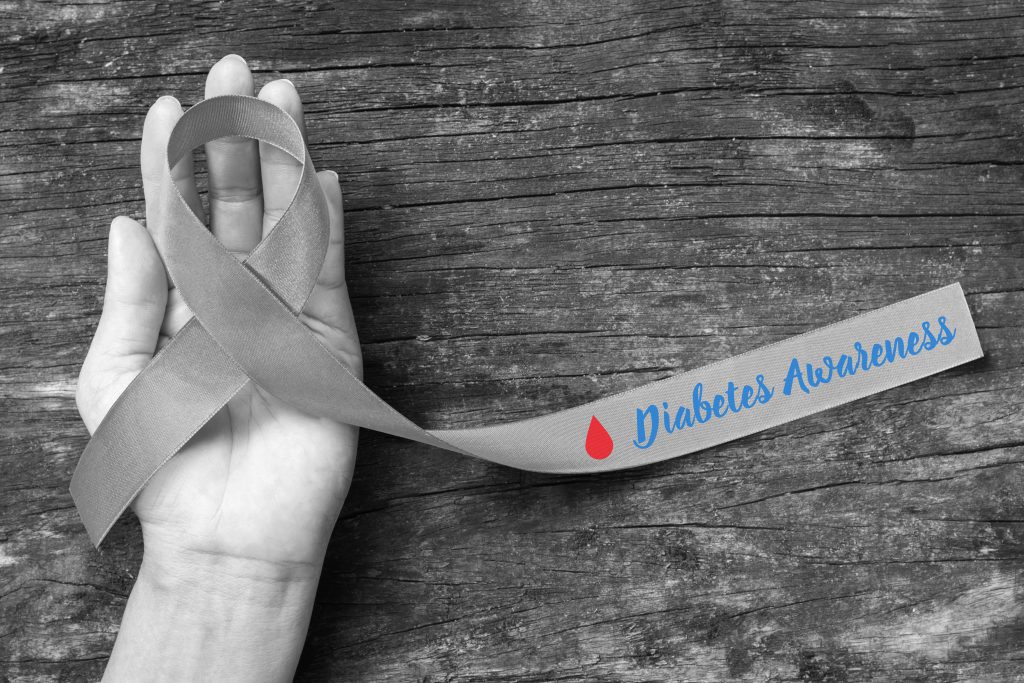So many of us have loved ones living with diabetes. Maybe you’re thinking about your own right now. Millions of people across the globe live and thrive with diabetes, but that doesn’t lessen the fear and anxiety you may feel about your friend or family member navigating the disease.
Maybe your loved one has been diagnosed recently, or maybe they’ve lived with the condition for a little while. Either way, it never hurts to brush up on your diabetes education or find new strategies to support and connect with your diabetic loved one.
Common misconceptions
• Myth 1: Only adults acquire type 2 diabetes, and only children acquire type 1.
Both types of diabetes can occur in either age group. In fact, in rare cases, it’s even possible to acquire a combination of both type 1 and type diabetes. For example, this could happen when 2 vaccines are taken simultaneously and negatively counteract.
• Myth 2: Sweets and high carb foods are strictly off-limits for people with diabetes.
No food is completely off-limits. But it’s crucial to control one’s portions responsibly, and take appropriate measures to safely manage blood sugar levels—such as taking the correct amount of insulin when it’s needed.
• Myth 3: Diabetics can always tell their approximate blood sugar levels, even without testing it.
That is true part of the time, but not always. Feeling ill, weak, or just “off” could also be the result of any number of things, like an unrelated sickness or infection. Many diabetics can sense when their blood sugar is low; however, sometimes they may not realize quite how low it truly is. It’s better to be safe and test it, and do what you need to adjust it accordingly.
• Myth 4: Exercise is dangerous for diabetics.
According to thehealthy.com, “Numerous studies have shown that regular physical activity actually helps lower blood sugar levels and can improve diabetes management.” Exercise is another form of medicine in a way. It’s almost always a positive, beneficial health practice, as long as the individual is able to exercise without injuring themselves or causing any internal bodily harm. When in doubt, ask a physician for exercise routine suggestions. Even something as low-impact as a brisk walk can be a good place to start. For diabetics, it’s important to test your blood sugar before and after exercise to check if its stable enough to work out. Pack a snack just in case—not just for exercising, but anywhere you go, for that matter. Packets of fruit snacks are helpful on the go, and easy to stash in a purse or backpack in the case of a low blood sugar episode.
Supporting your diabetic loved one
Stay calm and encourage – In the midst of a worrisome and even scary diagnosis, the last thing the patient needs is more panic, fear, and anxiety projected from others. Take it one step at a time, have hope, and educate yourself as much as you can. Knowledge is power.
That said, any emotions you or your loved one may be feeling amidst this life-altering news is valid, but remember: Millions of people carry out full, exceptional lives despite a diabetes diagnosis. And at the end of the day, we need to encourage and uplift our diabetic loved ones, rather than dwelling in the what ifs more than necessary.
Do your research – Scour the internet, but don’t believe everything you read. Take it all with a grain of salt, and make sure you’re utilizing reputable sources. Consult with a doctor, preferably one well educated in diabetes management. You may even consider visiting a dietician or nutritionist.
Don’t micromanage – Helping your loved one get adjusted to a new way of life is an understandable (and sometimes vital) impulse, especially in the beginning, but this diagnosis shouldn’t strip your loved one of autonomy and independence. It’s okay to step back and allow them to take control of their own lives and health, at least to an extent, once they get the hang of their diabetes management and new lifestyle. However, this does depend on their age and current mental faculties. A child, or an older adult (especially one with memory issues) may require additional observation and assistance.
No unnecessary harsh criticism – Different people have different ways of dealing with physical and emotional conditions. What matters most is that your loved one is safe and able to manage their diabetes. A diabetes diagnosis can cause fear, worry, and sadness. Even shifting blood sugar levels can alter moods. Validate what your loved one is thinking and feeling. Everyone is entitled to feel what they feel. Additionally, it’s not very effective to harshly criticize or your loved one’s eating habits, or shame them for that. Real change takes time, and learning to manage a life with diabetes is a huge adjustment. Be patient. Find your compassion.
Respect your loved one’s dietary needs – Try to avoid eating high carb foods in front of them if possible. Of course, all food has carbohydrates, so it’s impossible to eliminate carbs altogether. But lowering your overall carb intake, avoiding processed food, exercising (regardless of diabetes type) and sticking to a healthy diet can be beneficial to everyone. That said, consult a physician with any concerns you may have about your lifestyle and health.
Ask and listen – Ask your loved one how you can help and support them, emotionally and physically. See if there are any ways you can make their day-to-day lives easier. Offer specific ideas of how you can pitch in, but don’t push it if they need their space.
While it’s sadly impossible to turn back time and prevent your loved one’s struggle with diabetes, you can move forward with hope and possibility. Being optimistic isn’t about erasing your loved one’s struggle or pretending it doesn’t exist—it’s about carrying on and believing in the best, while taking practical, tangible ways to live the fullest and healthiest lives you can.

If you found an error, highlight it and press Shift + Enter or click here to inform us.



